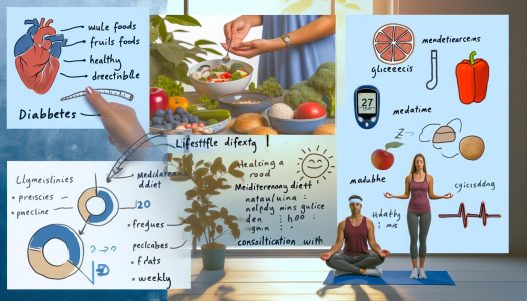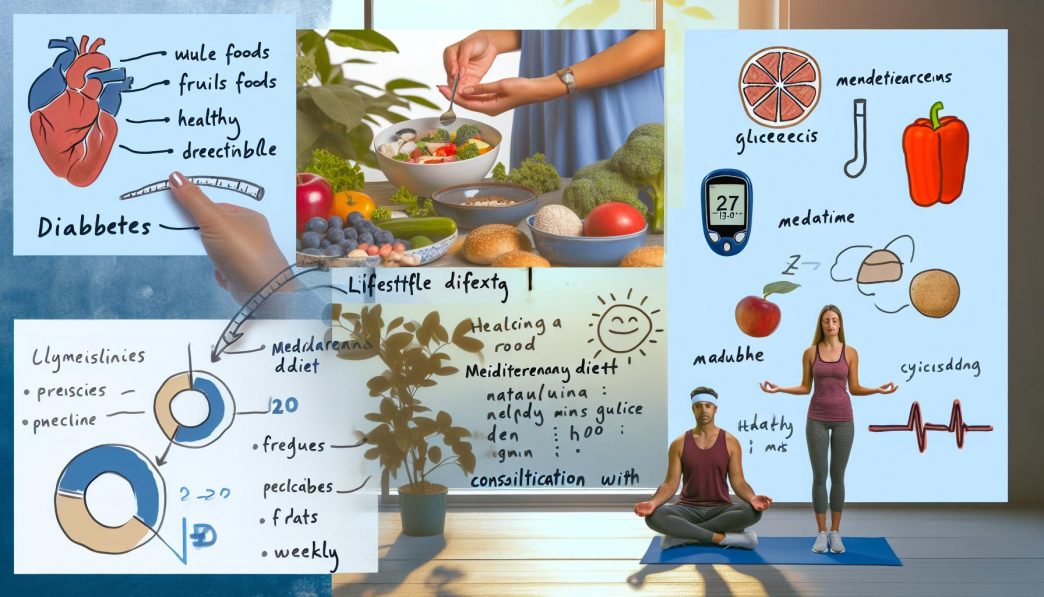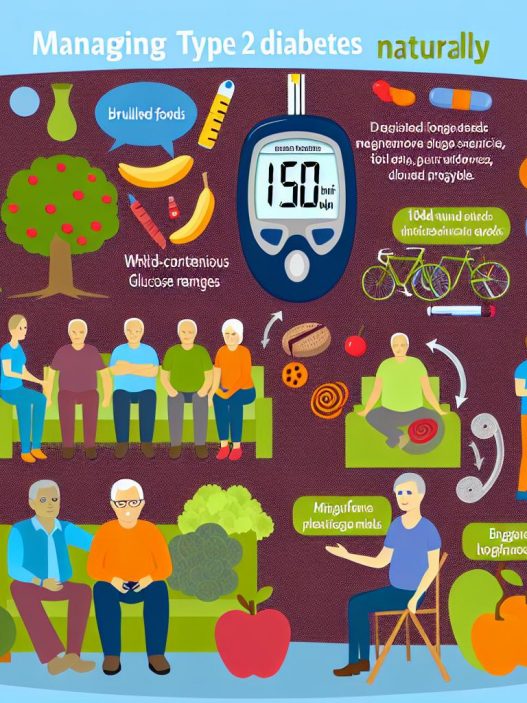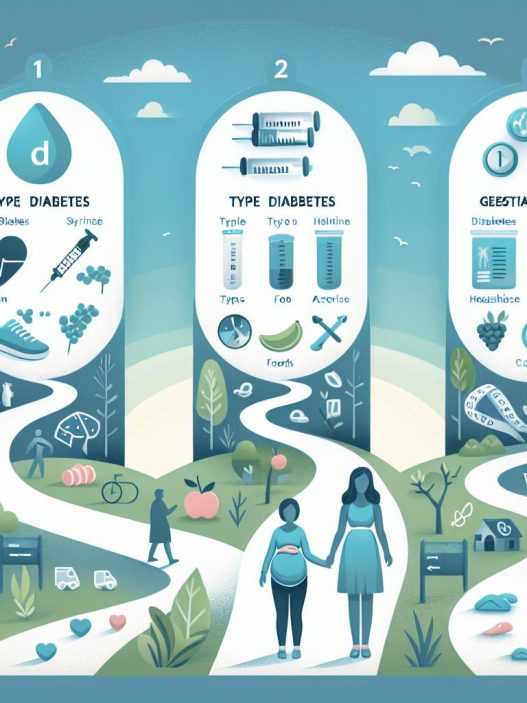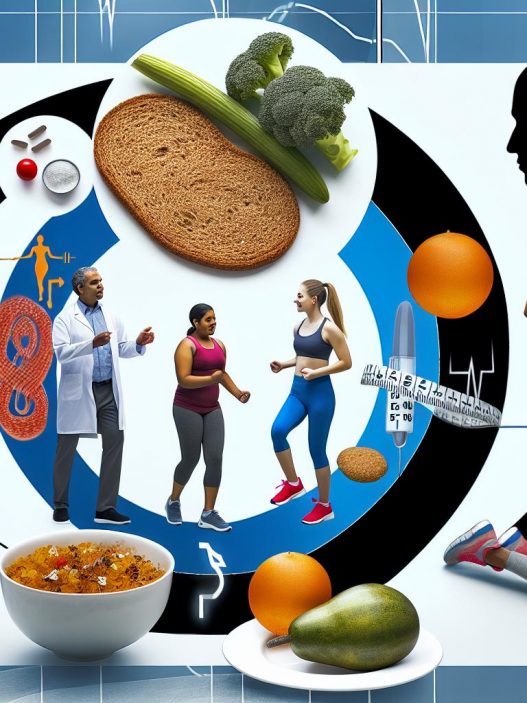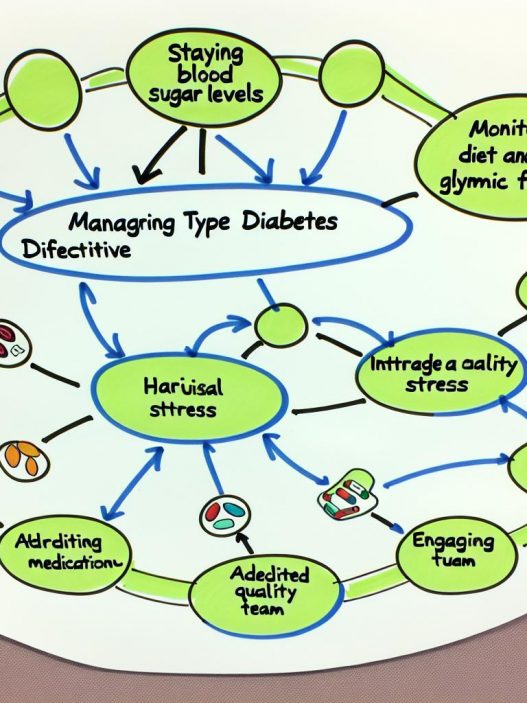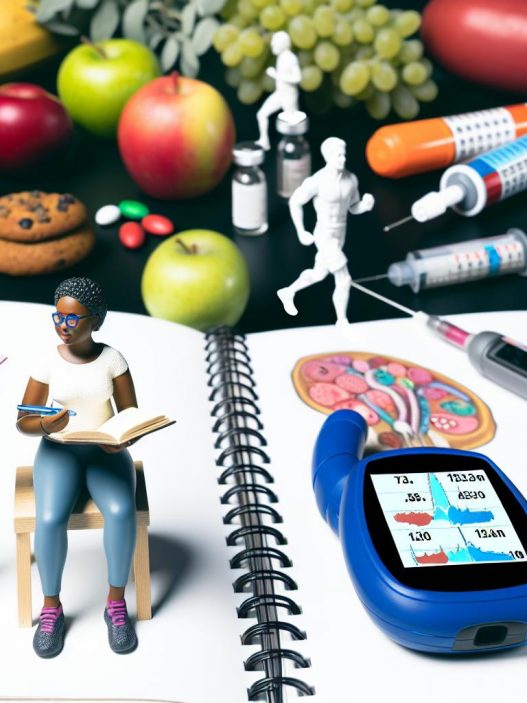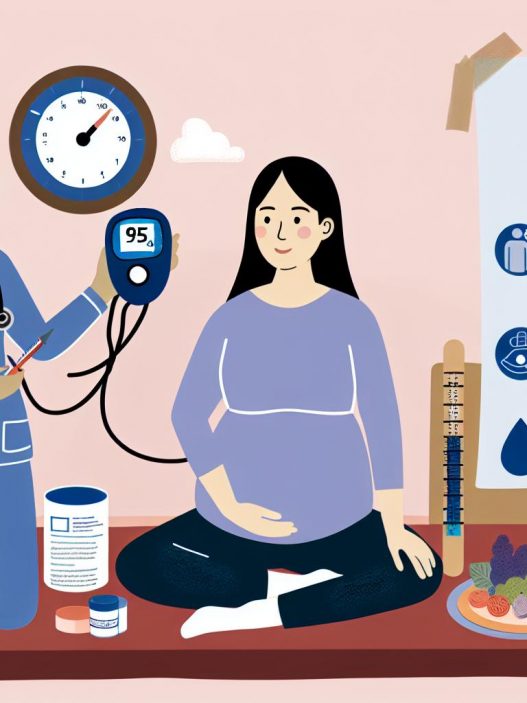**Effective Tips for Managing Type 2 Diabetes Naturally and Easily**
Managing type 2 diabetes can seem overwhelming, but with the right approach, it’s possible to lead a healthy and balanced life. Implementing natural strategies can have a profound impact on blood sugar control, weight management, and overall well-being. In this comprehensive guide, we will explore effective tips for managing type 2 diabetes naturally and easily, offering practical insights to help you navigate your health journey.
Understanding Type 2 Diabetes: An Overview
Type 2 diabetes is a chronic condition characterized by insulin resistance, meaning the body cannot effectively use insulin to regulate glucose levels in the blood. This condition often develops due to obesity, a sedentary lifestyle, and poor dietary choices. Understanding the fundamentals of type 2 diabetes is crucial for implementing effective management strategies.
The primary objective for individuals with type 2 diabetes is to maintain normal blood sugar levels through lifestyle changes and, in some cases, medications. A proactive approach includes regular monitoring of blood glucose levels, adopting a balanced diet, engaging in physical activity, and making informed choices about stress management and sleep quality. By equipping yourself with knowledge about type 2 diabetes, you can take charge of your health and make choices that support a healthier lifestyle.
Adopting a Balanced Diet for Blood Sugar Control
A balanced diet is one of the most crucial aspects of managing type 2 diabetes effectively and naturally. It is essential to focus on incorporating whole foods, such as vegetables, fruits, lean proteins, and healthy fats, into your meal plans while minimizing processed foods high in sugar and refined carbohydrates.
One effective dietary approach is the Mediterranean diet, which emphasizes whole grains, legumes, nuts, fish, and a wide variety of vegetables. This diet is not only heart-healthy but can also help in managing blood sugar levels. By planning meals around these nutrient-dense foods, you can reduce spikes in blood sugar and promote better metabolic health. Additionally, portion control plays a significant role in blood sugar management. Keeping track of serving sizes can aid in preventing overeating and maintaining a healthy weight.
Another vital consideration is the glycemic index (GI) of foods. The glycemic index ranks carbohydrates based on their effect on blood sugar levels. Foods with a low GI value release glucose slowly into the bloodstream, aiding in better blood sugar control. Incorporating low-GI foods, such as legumes, whole grains, and non-starchy vegetables, can create a more stable blood sugar environment. Pairing higher-GI foods with proteins or healthy fats can also help mitigate their impact on blood glucose.
The Importance of Regular Physical Activity
Engaging in regular physical activity is another cornerstone of managing type 2 diabetes naturally. Exercise helps improve insulin sensitivity, allowing the body to use glucose more effectively. It also aids in weight management, which is especially important as excess weight is a significant risk factor for developing insulin resistance.
It is recommended to incorporate a combination of aerobic and resistance training exercises into your routine. Aerobic activities, such as walking, cycling, swimming, or dancing, can improve cardiovascular health and help burn calories. Aim for at least 150 minutes of moderate-intensity aerobic exercise each week. Meanwhile, resistance training exercises, such as weight lifting or bodyweight exercises, can increase muscle mass, which helps the body use glucose more effectively and improves overall metabolism.
Additionally, incorporating movement into your daily life can promote better blood sugar control. Simple changes like taking the stairs instead of the elevator, going for brisk walks after meals, or engaging in active hobbies can significantly contribute to overall fitness. The key is to find activities that you enjoy and look forward to, making it easier to establish a consistent exercise routine over time.
Monitoring Blood Sugar Levels Effectively
Regular monitoring of blood sugar levels is essential for managing type 2 diabetes. By staying informed about how your body responds to certain foods, activities, and lifestyle changes, you can make more informed decisions about your health.
It is generally recommended to monitor blood glucose levels as directed by your healthcare provider. This could include daily monitoring or less frequent checks, depending on your treatment plan and individual needs. Keeping a log of your blood sugar readings, along with notes on what you ate, your exercise activities, and how you felt, can provide valuable insights into your management strategy.
In addition to traditional blood glucose meters, continuous glucose monitors (CGMs) are becoming increasingly popular. These devices provide real-time glucose readings throughout the day and can help identify patterns and trends in your blood sugar levels. With this information, you can make necessary adjustments to your diet or activity levels more effectively, ultimately leading to better diabetes control.
Embracing Stress Management Techniques
Chronic stress can have a significant impact on blood sugar levels and overall diabetes management. When you experience stress, the body releases hormones like cortisol and adrenaline, which can lead to increased blood glucose levels. Therefore, incorporating effective stress management techniques is paramount.
Mindfulness practices, such as meditation and deep breathing exercises, can help calm the mind and reduce stress levels. Setting aside time each day to engage in mindfulness can promote relaxation and improved mental clarity. Additionally, yoga is an excellent practice that combines physical activity with mindfulness, offering benefits for both body and mind.
Social support is also an essential element of stress management. Surrounding yourself with friends and family members who understand your journey can provide the encouragement and motivation needed to persevere. Participate in local diabetes support groups or online communities where you can share experiences, challenges, and successes. Engaging with others who face similar challenges can foster resilience and give you valuable coping strategies.
Prioritizing Quality Sleep for Overall Health
Sleep is a vital component of overall health that should not be overlooked in the management of type 2 diabetes. Poor sleep quality and insufficient sleep can lead to insulin resistance, increased cravings for unhealthy foods, and more significant fatigue, which disrupts the ability to engage in physical activity. Prioritizing quality sleep should be a fundamental part of any diabetes management plan.
Establishing a consistent sleep schedule, by going to bed and waking up at the same time daily, can improve the quality of your sleep. Additionally, creating a restful environment in your bedroom, free from distractions like electronics, can promote better sleep hygiene. Limiting caffeine intake, particularly in the afternoon and evening, can also create a more conducive atmosphere for restful sleep.
Practicing relaxation techniques before bedtime, such as reading, taking a warm bath, or gentle stretching, can reassure the mind and body and help facilitate a quicker transition to sleep. Aim for 7-9 hours of quality sleep each night to reduce fatigue, maintain emotional balance, and support your efforts in managing type 2 diabetes effectively.
In conclusion, managing type 2 diabetes naturally and easily involves a holistic approach that encompasses a balanced diet, regular physical activity, effective blood sugar monitoring, stress management, and prioritizing quality sleep. By integrating these strategies into your daily life, you can take control of your health and wellbeing while significantly improving your ability to manage this condition effectively. Consult with your healthcare provider before making any drastic changes to your lifestyle to ensure that your plan aligns with their recommendations and your unique health situation.










